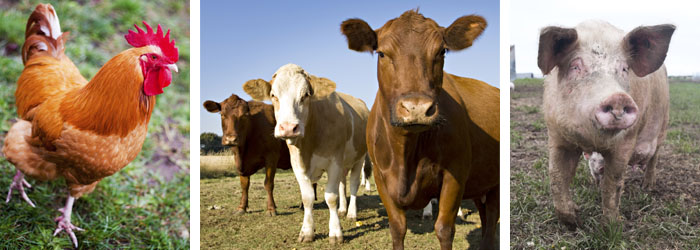HSVMA Sponsors 2016 World Spay Day Events
Clinics Combine Veterinary Student Training With Companion Animal Population Control
February 19, 2016
For the sixth year in a row, HSVMA is sponsoring World Spay Day events involving veterinary students to promote awareness of the need for spay and neuter of companion animals as well as to help provide training opportunities for veterinary students in this life-saving surgical procedure.
World Spay Day is an annual campaign presented by The Humane Society of the United States, Humane Society International and HSVMA. Launched in 1995, it aims to encourage people to save animal lives by spaying and neutering companion animals and feral cats. World Spay Day is celebrated annually on the fourth Tuesday in February, but events take place throughout the month of February, which is recognized as Spay/Neuter Awareness Month.
HSVMA encourages veterinary students to participate in World Spay Day events because it is a great opportunity to not just help companion animals in their communities, but also to gain some hands-on training in surgical skills. For many students, the events foster a desire to continue to help address companion animal overpopulation during their veterinary school years and beyond.
In 2016, HSVMA is sponsoring World Spay Day events involving veterinary students from the University of Florida, Western University, and Tuskegee University. These events will provide sterilization surgeries to animals in need as well as offer hands-on training to dozens of veterinary students in a variety of tasks, ranging from surgical prep and anesthesia monitoring to assisting with surgery.
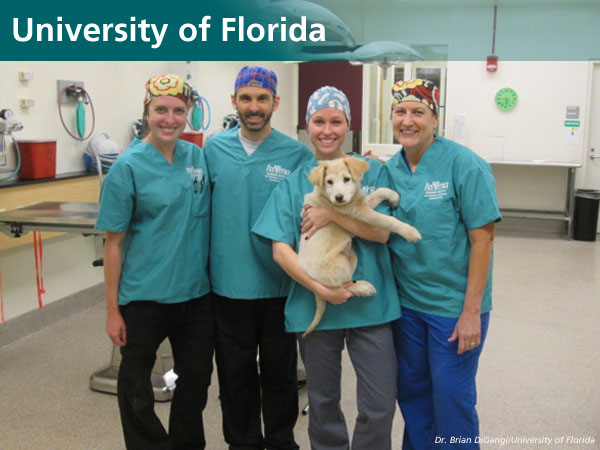
The University of Florida held its World Spay Day event on Monday, February 15. Together, surgeons, staff and students spayed and neutered 24 dogs and cats, including several large adult dogs, from Helping Hands Pet Rescue and Puppy Hill Farm. They also provided surgery for a few dogs that live at Dignity Village, a camp site for homeless people in the Gainesville community.
"Our students and staff were excited to have the opportunity to participate in World Spay Day this year!" said Brian DiGangi, DVM, MS, DABVP, a clinical assistant professor of shelter medicine at UF. "Spay/neuter plays such an important role in reducing pet overpopulation in our community and surgical services are always in high demand. It was great to see our surgery clinic bustling with activity on what is normally a day off. Since our services are limited to shelter and rescue animals, that activity translates into a chance at adoption for dozens of pets!"
Dr. DiGangi was joined by Dr. Natalie Isaza, who started the Veterinary Community Outreach Program at UF, an elective clinical rotation that is designed to introduce students to the challenges of veterinary practice in both community and shelter environments and to give experience in spay/neuter techniques.
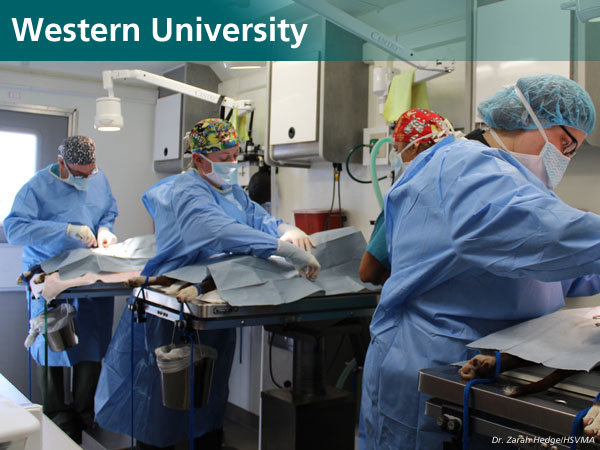
The Western University of Health Sciences College of Veterinary Medicine HSVMA Student Chapter and Student Chapter of the ASV observed World Spay Day on Saturday, February 20 through collaborations with Mercy House, an organization that works with the homeless and very low income in the communities, Pomona Homeless Outreach Program, a student-run organization that provides support to the homeless adults and families of Pomona, and HOPE (Helping Out Pets Everyday), an animal rescue group. Donations from veterinary students and PHOP, including both food for animals and people, were collected before the event and donated to Mercy House.
The University had both of their mobile VACS (Veterinary Ambulatory Community Service) units at the event – the first time both units have been used at one event – and offered free spay/neuter and preventive care (vaccines, microchips, flea preventives, etc.) for dogs and cats. As part of their shelter medicine/HQHVSN externship, fourth-year veterinary students performed surgeries under the supervision of a veterinarian on the VACS II unit.
For Western University's first World Spay Day event, their numbers are impressive! Staff and students spayed a total of 30 dogs and cats, did one enucleation, and provided any needed preventative care.
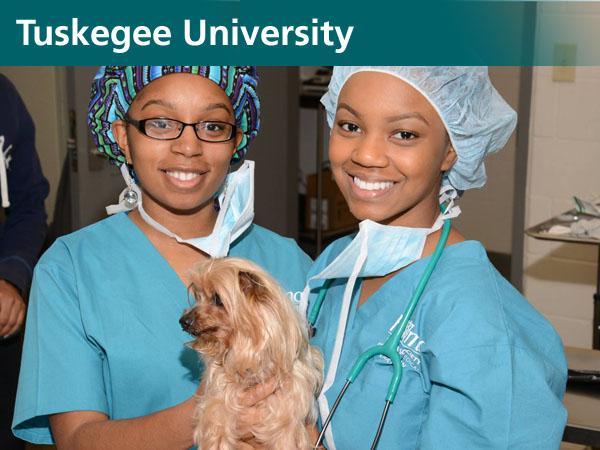
On February 27, the Tuskegee University School of Veterinary Medicine SCAVMA, Shelter Club, and Omega Tau Sigma Veterinary Fraternity worked with a local shelter to hold the first World Spay Day event at the university. The event was a unique learning opportunity for more than 85 student volunteers (from all 4 classes!) who spent their Saturday giving back to the local community, spaying and neutering more than 20 dogs and cats for free!
Their World Spay Day program aims to help the local community with its efforts to curb dog and cat overpopulation and provide an opportunity for TUSVM students to gain hands on pre-surgical, surgical, anesthesia and post-surgical experience. The procedures were performed on campus by students with the assistance of their faculty.
|
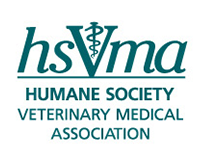
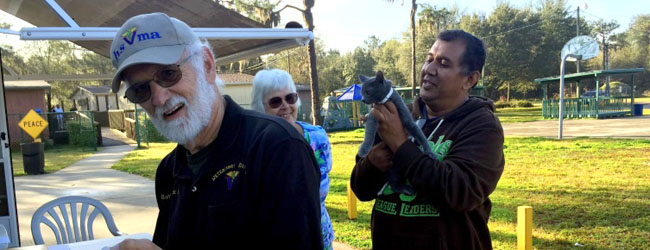
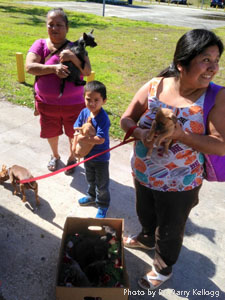 Basic veterinary care is just beyond the economic reach of migrant farm families, who only earn between $11,000 and $20,000 per year. This is in addition to the increasing cost of veterinary services. We are reaching a crisis of sorts in the veterinary profession, with appropriate access to care being a real issue for a significant segment of our population. Although we at HSVMA have been instrumental in helping to form
Basic veterinary care is just beyond the economic reach of migrant farm families, who only earn between $11,000 and $20,000 per year. This is in addition to the increasing cost of veterinary services. We are reaching a crisis of sorts in the veterinary profession, with appropriate access to care being a real issue for a significant segment of our population. Although we at HSVMA have been instrumental in helping to form 